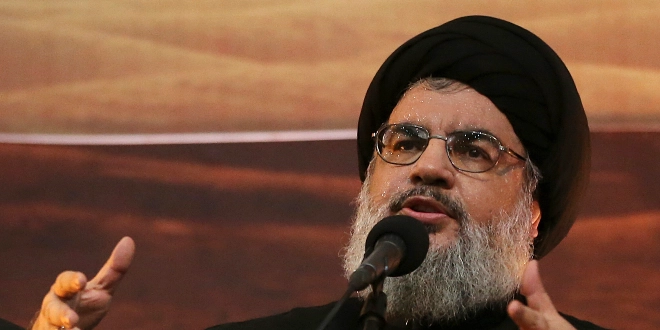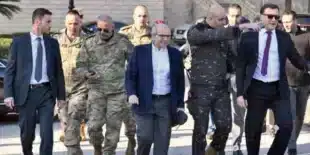Sheikh Naim Qassem, the deputy leader of Hezbollah, has stated that Israel lacks the authority to dictate terms regarding Hezbollah’s presence along the Lebanese border, especially amid the ongoing conflict in Gaza.
The Israel-Lebanon border has experienced heightened tensions, marked by increased exchanges of fire, primarily between the Israeli army and the Iran-supported Hezbollah. This escalation followed the outbreak of the Israel-Hamas war on October 7, raising concerns about a potential wider conflict.
In response to these tensions, the Israeli army has relocated thousands of civilians from the border region. Israel has been advocating for Hezbollah to move northward, beyond the Litani River, located roughly 30 kilometers from the frontier.
Sheikh Qassem criticized Israel’s attempts to assert control and influence in the area, especially its efforts to repatriate displaced Israelis and push Hezbollah away from the border. In his speech, he asserted that Israel couldn’t unilaterally enforce its will, emphasizing that the cessation of the Gaza war is a prerequisite for peace in Lebanon.
Qassem warned of a robust and proportionate response to Israel’s continued bombardment of Lebanese civilians, indicating Hezbollah’s stance against Israeli aggression.
Since the onset of the cross-border hostilities, casualties on the Lebanese side have exceeded 160, primarily Hezbollah fighters but also including over 20 civilians, with three journalists among them, as per AFP reports. On the Israeli side, the conflict has claimed the lives of at least five civilians and nine soldiers.
Hezbollah has continually launched attacks against Israeli forces and positions, claiming solidarity with Hamas. In contrast, Israel has targeted areas in south Lebanon. On a recent Sunday, the Israeli army announced airstrikes against Hezbollah infrastructure and military sites in south Lebanon’s Ramyeh area, accusing Hezbollah of using civilian areas as cover for terrorist activities.
Despite Hezbollah’s lack of visible military presence in Lebanon’s south since the 2006 war with Israel, it continues to exert significant influence in the region, building hideouts and tunnels. United Nations Security Council Resolution 1701, which concluded the 2006 conflict, mandates the withdrawal of all armed personnel north of the Litani River, with the exception of UN peacekeepers and Lebanese state security forces.
The Israeli army has accused Hezbollah’s attacks of violating Resolution 1701. Amid these developments, Lebanon’s caretaker Prime Minister Najib Mikati stated that Lebanon is prepared to implement international resolutions if Israel reciprocates by withdrawing from contested territories.


